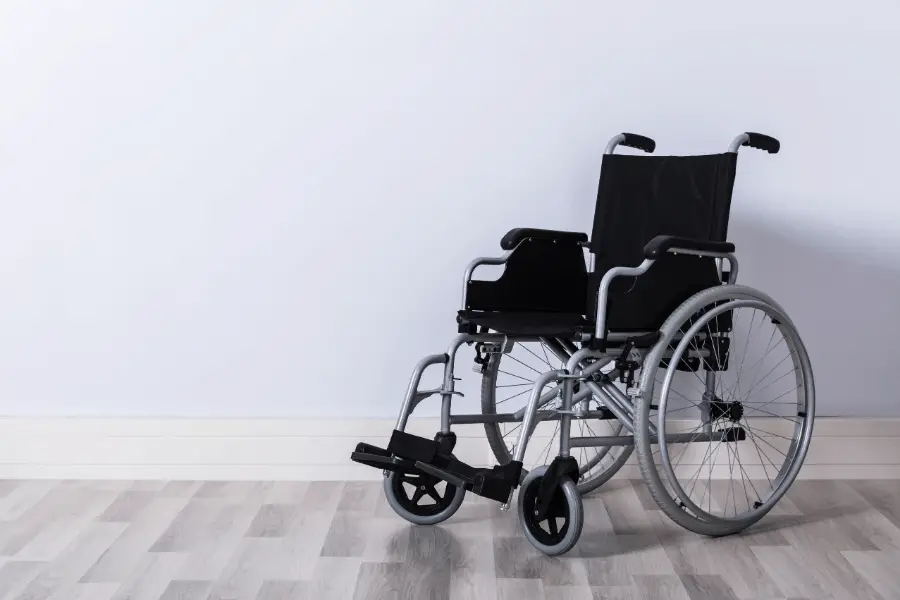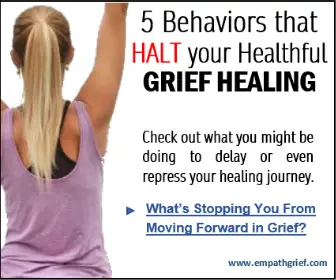Preparing for a disabled loved one’s funeral is costly, stressful, and can seem impossible without the proper resources.
This is often more true for the family of disabled people due to the ever-present financial strains they often face during life.
Happily, there are many government and charitable organizations that provide monetary relief for those who are preparing a final farewell to a loved one.
Federal assistance such as the Federal Trade Commission and Veterans Affairs are great resources to keep funeral costs low for a disabled loved one. If a federal program is not applicable to you, look into state or local nonprofits that also assist in monetary relief for disabled people’s funerals.
If you are reading this you have probably be worknig extremely hard to care for your loved one, perhaps for years already.
So I’d like to make this as easy and clear as I can by giving you a full list of why funeral expenses rack up, and tips for getting monetary aid on both the federal and local level.

Why Financial Assistance Could Be Necessary For The Funeral
Many families undergo a significant financial burden when preparing for a funeral.
While fees can vary based on where you live and the funeral choices you make, the average funeral costs around $5,000 and $10,000. For a family or individual without significant savings, this is not an easy cost to cover.
Funeral expenses come from the casket or urn, funeral director, embalming or cremation, headstones, grave markers, obituary’s, funeral flowers, etc.
If you need to order flowers for a funeral then I can really recommend BloomsToday.com as I had an excellent experience buying from their site. You can check out the deals they have here, but when I ordered it was 25% off! Fingers crossed!
In some cases, planning and affording a disabled person’s funeral comes with extra hurdles. If the person had a developmental disability, it may be hard to discuss with them their wishes for their end of life.
Every person has the right to decide what will happen to their body when they are gone, so ensuring you know what the person wants before they pass is important.
If the disability is physical, the individual may have been receiving disability benefits from the government which does not leave much room for expenses outside of everyday living. Physical disabilities can keep people from working and saving money.
For people with chronic illnesses, it may even mean the person who passed was not eligible for life insurance. In a lot of cases, the individual and family will not have enough to cover even the most basic funeral expenses.
If you are lucky enough to be able to plan ahead, it is best to discuss the funeral plans with your family and your disabled loved one long before their passing.
Of course, these conversations can be tough at the best of time. If you are interested in finding out some strategies you can use, especially if discussing this with an unwilling participant, please read my article here.
Although making arrangements for death is not easy, it will ensure that both your loved one and you are prepared when the day does come. Planning ahead will ease the stress of the funeral.
Make sure you know which services you do and don’t want to pay for. This will help you create a budget and try to plan where you will get the extra money from.
Planning ahead is also a great opportunity to find out which charities and government organizations will be able to assist you with financial support.
If you are learning the lessons of not having life insurance and leaving your loved ones with enough money to cover your final expenses, then see my recommended life insurance brokers for the cover you REALLY need.
Government Organizations That Provide Funeral Aide
The Federal Trade Commission, or FTC, has outlined Funeral Rules that support and protect those who are seeking services at funeral homes.
The rules set fourth what services funeral homes can offer and how much they can charge.
The rules give people and their loved one’s the right to:
- Buy only the funeral arrangements you want in order to avoid package deals that come with items you do not want. Individuals will be able to pick and choose separate goods and services outside of a package.
- Receive accurate pricing over the telephone. Funeral directors have to be upfront about pricing if asked. Funeral homes can also mail price lists and post their prices online, although this is not a requirement.
- Receive a written itemized list of services when you visit the funeral home.
- See a casket price list before you see the caskets. This ensures you can inquire about lower-priced caskets before viewing the more expensive caskets on display. Also, consider buying your own casket directly from a supplier online to save even more, I recommend Titancaskets.com.
- See a written list of burial containers. Similar to the casket rule, people must be allowed to see a list of outer burial containers itemized by price. This gives the buyer the option to see everything the home has to offer.
- Receive a statement after you have decided everything you want. This allows the buyer to understand exactly the costs they will be expected to pay.
- The Funeral home must notify the buyer of any cemetery or crematory requirement that requires you to buy extra goods or services.
- Allow the buyer to purchase an alternative container for the body in lieu of a casket for cremation.
- The funeral provider must accept a casket or an urn that the buyer purchased elsewhere and also cannot charge a fee. Again, you can really save thousands by buying a casket online from a supplier such as Titancaskets.com.
- The funeral provider must make the option to have a funeral without embalming clear. No state requires embalming for all deaths, so the funeral home must help the buyer understand their options before pushing them to embalm.
When you plan ahead, go over the FTC rules with your disabled loved one. Make sure they are with you deciding what type of arrangements they would like.
The FTC rules are set in place to help you save money while still being able to hold a funeral for your loved one.
If you would like to know about some of the questions you should be asking a funeral home in order to get the best deal, please refer to my article here.
Funerals for disabled veterans
If your disabled loved one was a Veteran who passed away, their funeral may be able to be covered in part by Veterans Affairs, or VA.
The VA has a number of services that can include paying for burial and plot expenses. They can give $300 of aid to those whose death is non-service related and up to $2,000 for service-related deaths.
Veterans Affairs only reimburses funeral costs, meaning the funeral must have already happened and been paid for out of pocket by a family member or friend.
The person cannot have received aid from any other government agency or the veteran’s employer. The veteran also must have not been discharged under dishonorable conditions.
The veteran must have had a service-related disability and was receiving or eligible for VA pension at the time of their death.
To apply for assistance from Veterans Affairs, the person who was financially responsible for the funeral must provide proof of death, receipt of funeral costs, and a statement from the funeral director or person who owns the cemetery.
For more information on help with funeral costs for veterans, please read my full guide.
Getting social security benefits
A person may also be eligible to receive Social Security monthly benefits from the Social Security Administration.
The survivor to the disabled loved one will receive monthly benefits to assist them with living costs. Typically, the amount of monthly benefit depends on the average amount the deceased earned during their lifetime.
There are other factors that are also taken into consideration in order to determine the benefits the survivor will receive. Often, benefits are more lenient for those who have disabilities.
To be eligible to receive Social Security benefits, a person must:
- Be a widow or widower who is age 60 or older, or age 50 if they have a disability. If they are at any age caring for a child who is under 16 or has a disability, they are also eligible
- Be a divorced widow or widower, age 60 or older, or age 50 if they have a disability. The marriage must have lasted at least ten years, or the person in question is caring for a child or children who are under 16 or disabled
- Be an unmarried child under the age of 18 or 19 if they are attending
- grade school or secondary school full-time. Under certain conditions, social security benefits can also be paid to stepchildren, grandchildren, or children who were adopted
- Be a child who was disabled before age 22 as long as their disability persists
- Be a depend parent or parents that are age 62 or older
If you match any of the above criteria, you can apply for social security benefits. You can apply online, or go to your local social security office in order to apply in person.
When you apply, you will need the disabled person’s death certificate, the social security numbers of the applicant, the diseased, and any dependent children, your birth certificate, marriage certificates or divorce papers, federal self-employment tax returns, and a bank account number for benefits to be deposited into.
If you were already a recipient of benefits before your partner died, you can report the death to Social Security and then change your payments to survivor benefits.
You may be entitled to more under survivor benefits.
Nonprofits That Provide Funeral Aid For People With Disabilities
There are many charitable organizations that provide funeral aid for those who have disabilities.
These nonprofits vary based on state, so it is a good idea to do some research online regarding what options are available in your state.
I have covered this is a lot more detail in another article which lists 11 non-profits who can help, which you will find useful if you fall into this category.
However, let’s cover a few ideas below.
Free funeral planning resources
California has a Nonprofit called the Coalition for Compassionate Care of California, or CCCC. This group created Thinking Ahead Matters, which is dedicated to planning and preparing funeral arrangements and fees for those with intellectual and developmental disabilities.
This helps those with disabilities gain a sense of self-determination and independence over their funeral preparations.
Thinking Ahead Matters provides a large list of resources including videos and PDF files that can be downloaded for free. Often, conversations that surround funerals and end-of-life care include jargon, challenging concepts, and many confusing options.
The PDF simplifies the language to make funeral choices easier to understand. They also provide an interactive workbook designed specifically for those with developmental disabilities.
They use a combination of writing, symbols, and graphics to make the site and workbook easy to navigate.
The booklet encourages and includes a guided discussion on end-of-life preferences, options for after-death, what to do with their personal belongings, what the funeral and burial can look like, and what kind of legacy the person wishes to leave behind.
If you or your loved one would rather work with a person to plan ahead rather than focus on online resources, you can find individual organizations that do just that.
Often, people have no idea what is acceptable or even required when planning a funeral. This can lead into paying more than they actually need to.
For example, in many states there is no law that requires you to work with expensive funeral home. if you want to find out more about this, please read my article here.
Working with a funeral consultant
The Funeral Consumer Guardian Society is unaffiliated with any funeral home and its only goal is to help you plan for an affordable funeral.
They are consumer advocates during the planning of the funeral and can help make arrangements. Unlike free online resources, funeral consultants come with a fee.
Even though there is a fee associated with the service, hiring a professional will save you money in the long run.
Your representative will help work with your budget and help you find the best deals in your area. They will look at local funeral homes, cemeteries and funeral providers in order to get you the best price.
As people whose job is to know about the funeral market in your area, it will be a lot less stressful than shopping around on your own.
You and your loved one can sit down together with the representative and leave the meeting with a detailed plan. This will greatly reduce the stress of paying for a funeral.
The organization you choose will keep your funeral preferences and plan safe until you or your loved one needs to use it.
You can call your representative at any time if your situation changes, you want to talk about the plan again, or if there are things you would like to change about your original plan.
When the death does occur, the representative will be able to notify the funeral director and cemetery so you will not have that added burden.
Using Crowd Sourcing to Help Fund A Funeral
If a disabled person or their loved one is unable to receive funeral assistance from a nonprofit in their city, state, or county because they do not meet eligibility standards or are otherwise unable to complete an application, they have other options for gaining resources regarding financial aid.
Crowdfunding platforms are a successful way to gather widespread support for a cause based on donations.
Crowdfunding, or crowdsourcing, it a money-raising method in which individuals request money from the public.
The rise in popularity of social media has made crowdfunding increasingly successful. Social platforms allow users to reach a large number of people, with individuals donating small amounts that can add up fast.
There are some crowdfunding websites that are specifically set up for funeral costs, and others that are more general and can encompass many different needs.
While there are no crowdfunding platforms specifically for covering funeral costs for those who are disabled, including a backstory about your deceased loved one’s life is sure to tug on the heartstrings of those who are willing and able to donate.
Deposit a Gift is a site specific to funeral and memorial funding. The website is free to use and user-friendly.
When creating a page, a person must write about the person who is deceased, the family, and include pictures of the person throughout their life.
A goal funding raising amount is set, and the campaign will remain live on the website until the goal is met. You can share your page on social media and encourage others to do so as well.
For those who are unable to donate, ask them to share the page on their own platforms to increase the likelihood of another person seeing it.
The most popular crowd-sourcing website is GoFundMe. Because it is so well known, it is recommended to use as people will recognize the website and feel more comfortable donating to it.
In order to get a site started, a person must register with the site and create a description of the campaign. The campaign can include photos, videos, and must include a backstory or a ‘why you should donate’ section.
A time period of the campaign must be set, along with the monetary fundraising goals. Once the period of time passes, people will no longer be able to donate to the page.
After goals are set, bank information is needed so payments from donors can be received. GoFundMe is free to use and user-friendly, taking only minutes to set up a campaign.
Crowdfunding platforms are not nonprofits, so there are some expenses a user has to cover.
Users will have to pay all associated credit card fees for donations, which usually factor about 3% of each donation. If you are looking for a new credit card even if you have bad credit, I can recommend Principal Platinum.
GoFundMe takes 3% of every donation given in order to keep the website up and running.
Factoring in both fees, expect between 5 and 6% of each donation to be given to the platform. This is important to keep in mind when choosing which crowdfunding platform to choose.
If you are unable or unwilling to pay the fees, then it is advised to stay away from these platforms.
Whether opting to crowdfund, secure assistance from a nonprofit, or going federal to get aid, getting assistance for funeral costs for a disabled person is a very doable endeavor.
It may take some extensive research about eligibility and require patience to find the best resource for your family and your loved one. The best thing a person can do is remain persistent. The right aid is out there for your family. You just need to find it.
How to pay for funerals with absolutely no money?
If none of the options I’ve covered above fit your case, then there may still be hope. Please refer to the articles below for more information.
I recently looked into getting a loan and I’ve actually had a good experience with Supermoney.com. For me, it was a car loan but I spoke to them about a dedicated funeral expenses loan, which is one of the services they offer, and was quite impressed. To see if you could qualify, check out my link here.





